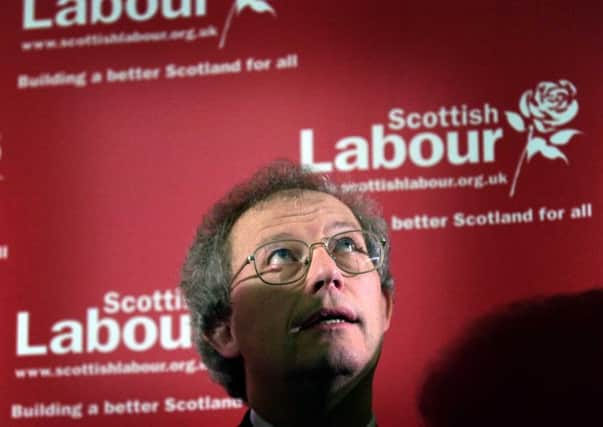Andrew Whitaker: Labour could look at McLeish’s ideas


McLeish has attracted some disdain among some of his party comrades over his backing for devo-max – full economic powers for Holyrood – as well as for his at times scathing criticism of the Labour-led Better Together campaign for a No vote.
It’s also fair to say that many in Labour view McLeish’s term as first minister as a period best forgotten, principally because of the manner of his departure amid a row that he sub-let part of his tax-subsidised Westminster constituency office. All of which is a shame as McLeish, in Labour and social democratic terms, is probably right more often than not.
Advertisement
Hide AdAdvertisement
Hide AdHis record as first minister is by no means all bad and the introduction of free personal care is probably one of the main successes delivered by any of the devolved governments since 1999. Free personal care is an achievement that stands alongside many other Holyrood advances, such as the smoking ban, in benefiting the quality of life in Scotland.
During Alex Salmond’s six-and-a-half years as First Minister, many in Scottish Labour have formed the impression that McLeish is the SNP leader’s favourite Labourite. McLeish’s chairing of taskforces on delivering improvements to Scottish football and on reforming prisons have often been cited as examples of the former first minister’s supposed closeness to the SNP administration. But to be fair, McLeish’s interventions on public issues are all very much made from a Labour standpoint in terms of wanting to tackle poverty and oppose cuts to public services.
The former first minister’s criticism of Better Together has largely focused on its perceived links to David Cameron’s government at Westminster and Tory involvement, which McLeish has argued will harm the cause of the No campaign. There’s no real basis for suggesting that McLeish is a crypto-nationalist as some in Labour appear to believe. In fact, McLeish is about as solid Labour as it’s possible to be and even if he were to eventually back a Yes vote, which is a very big if, there’s no prospect of him moving towards SNP membership.
McLeish has made what many would view as very Labour interventions by calling for an end to the demonisation of people on benefits by making the argument that the bulk of welfare benefits are paid out to subsidise low pay and that issues such as a living wage need to be addressed first and foremost.
There are all sort of implications with the devo-max stance McLeish backs, particularly about what effect this would have on the eligibility of Scottish MPs to vote on economic issues at Westminster if all economic policy was devolved to Holyrood.
However, with Labour at Holyrood still facing a long road back to power, despite progress made by Johann Lamont, perhaps the party leadership could take on board some of McLeish’s ideas.